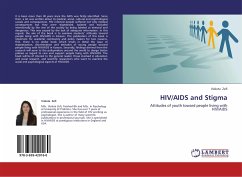Given the growing number of women living with HIV/AIDS and the prevalence of psychological distress they experience, this research examined the social and individual resources that promote psychological adjustment among these women. The association of social resources (i.e., social support) and individual resources (i.e., self-esteem, perceived control, coping strategies) on adjustment is well documented. However, much of this research has failed to examine the relations between social and individual resources. This research examined three theoretical relations: 1) Support-Mediation Hypothesis: the effects of social resources on adjustment are mediated by individual resources; 2) Individual Resource-Mediation Hypothesis: the effects of individual resources on adjustment are mediated by social resources; and 3) Support-Moderation Hypothesis: the effects of social resources on adjustment are moderated by individual resources. The findings provide evidence that social and individualresources interact to promote psychological adjustment and suggest that future work must integrate social and individual resources to understand psychological adjustment.
Hinweis: Dieser Artikel kann nur an eine deutsche Lieferadresse ausgeliefert werden.
Hinweis: Dieser Artikel kann nur an eine deutsche Lieferadresse ausgeliefert werden.








